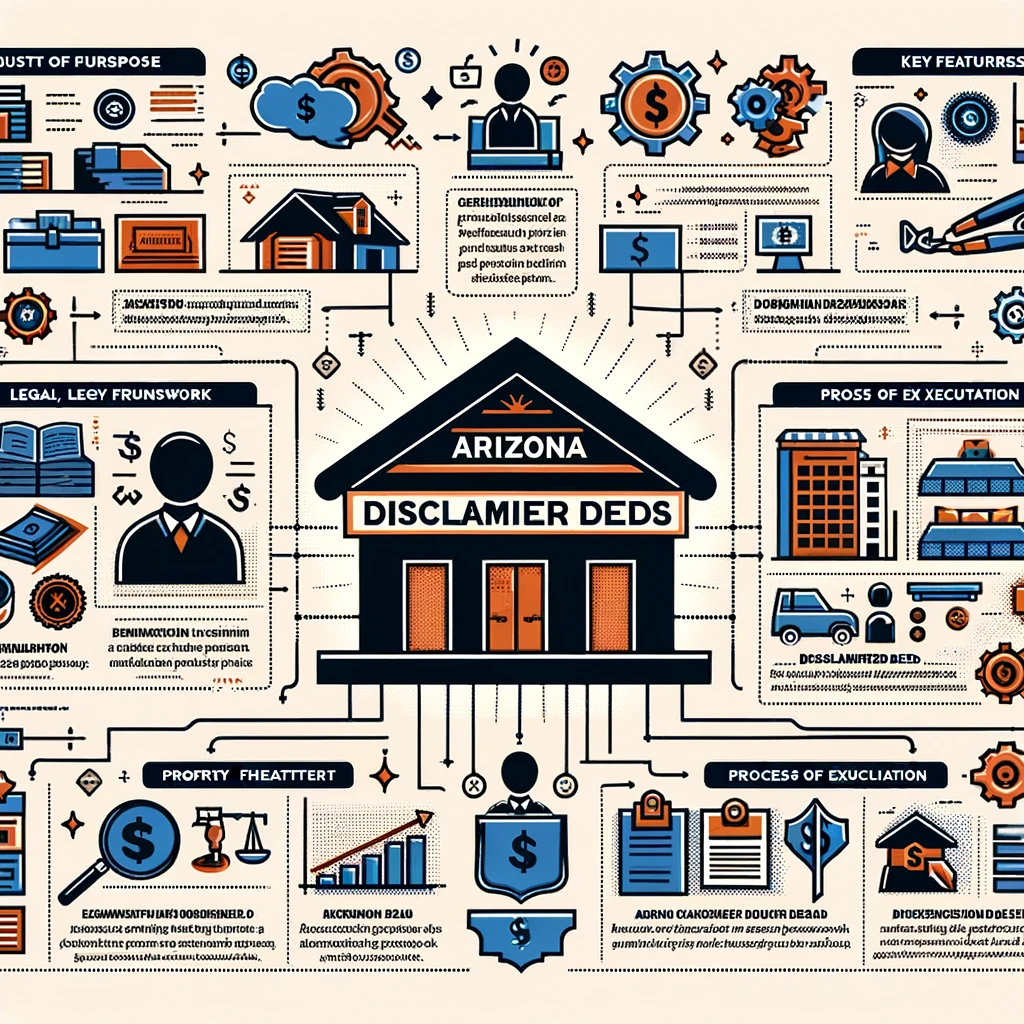Arizona Disclaimer Deeds: Understanding Their Role in Property Transactions
In the realm of real estate transactions within Arizona, the disclaimer deed occupies a unique position. Distinguished from more commonly understood deeds like the warranty or quitclaim deeds, a disclaimer deed in Arizona serves a specific purpose in property conveyance and estate planning. This article delves into the nuances of the Arizona disclaimer deed, its legal implications, and strategic uses, providing an essential guide for property owners, buyers, and legal professionals navigating Arizona’s real estate landscape.

Understanding the Arizona Disclaimer Deed
A disclaimer deed is a legal instrument used in Arizona to disclaim any interest in real property. Typically utilized in marital property transactions, it allows one spouse to forego any right to property purchased by the other spouse, ensuring the property is recognized as the purchasing spouse's separate property. This distinction is crucial in a community property state like Arizona, where assets acquired during the marriage are presumed to be jointly owned unless otherwise specified.
Legal Framework
The Arizona Revised Statutes (ARS) govern the use and recognition of disclaimer deeds within the state. Specifically, ARS § 33-431 provides the legal foundation for the execution and recording of these deeds, ensuring they meet all requirements to be considered valid and enforceable.
Key Features of Arizona Disclaimer Deeds
No Warranty of Title: Unlike warranty deeds, disclaimer deeds do not guarantee the title's quality. The disclaiming party simply states they have no interest in the property without affirming or negating the title's status.
Change in Ownership Structure: It’s commonly employed to adjust the ownership structure of real estate, particularly between spouses, to reflect individual ownership as opposed to community property.
Estate Planning and Asset Protection: Frequently used in estate planning, disclaimer deeds can help manage how assets are distributed and protected, aligning with broader estate strategies.
The Process of Executing a Disclaimer Deed in Arizona
Drafting the Deed: The disclaimer deed must include specific language stating that the disclaiming party relinquishes all rights to the property in question. It should identify the grantor (disclaiming party), grantee (party receiving the interest), and the legal description of the property.
Signing Requirements: Arizona law requires the disclaiming party to sign the deed in the presence of a notary public. This notarization process authenticates the identity of the signing party and their voluntary act of signing.
Recording the Deed: To be effective against third parties, the completed and notarized deed must be recorded with the county recorder's office in the county where the property is located. Recording fees apply and vary by county.
Legal Implications and Considerations
Impact on Property Rights: The primary legal effect of a disclaimer deed is the clear separation of property into individual ownership, which can significantly impact rights during divorce proceedings or upon the death of a spouse.
Tax Consequences: Disclaiming interest in property may have tax implications, particularly related to estate and gift taxes. It’s advisable to consult with a tax professional to understand these potential impacts fully.
Use in Estate Planning: In estate planning contexts, disclaimer deeds can be strategic tools for asset distribution, allowing spouses to plan their estates around individual rather than community property.

Create & Review Your Contracts 10x Quality and Ease
Lawyer-level AI handles all your contract needs, with real lawyers providing safeguarding support

Best Practices for Using Disclaimer Deeds in Arizona
Legal Consultation: Given the legal and financial stakes involved, consulting with an attorney experienced in Arizona real estate law is crucial before executing a disclaimer deed.
Thorough Review and Understanding: Both parties should fully understand the deed's implications, particularly concerning property rights and financial liabilities.
Compliance with State Requirements: Ensure the deed complies with all Arizona legal requirements, including the necessary language, signing, and recording procedures.
Conclusion
The Arizona disclaimer deed is a potent legal tool for managing property rights, particularly within the context of marriage and estate planning. By allowing one party to formally relinquish property rights, it facilitates the clear delineation of individual assets, aligning with personal, financial, and legal strategies. Whether for immediate property transactions or long-term estate planning, understanding and correctly utilizing disclaimer deeds in Arizona can provide significant benefits and protections.
For further reading and resources, the Arizona State Legislature’s website offers detailed statutes on property law, while educational institutions like Arizona State University’s Sandra Day O’Connor College of Law provide additional legal insights and resources.

